



External Affairs Minister S Jaishankar is visiting Pakistan to attend a summit of the Shanghai Cooperation Organisation (SCO). This marks the first high-level visit by an Indian official to Pakistan in nearly a decade.
What is the SCO?
The Shanghai Cooperation Organisation (SCO) is a Eurasian political, economic, international security, and defense alliance. Established on June 15, 2001, in Shanghai, the organisation was formed by Kazakhstan, China, Kyrgyzstan, Russia, Tajikistan, and Uzbekistan, evolving from the earlier Shanghai Five framework. The SCO is governed by the Heads of State Council (HSC), its supreme decision-making body that convenes annually to deliberate on key issues and set organizational policies.
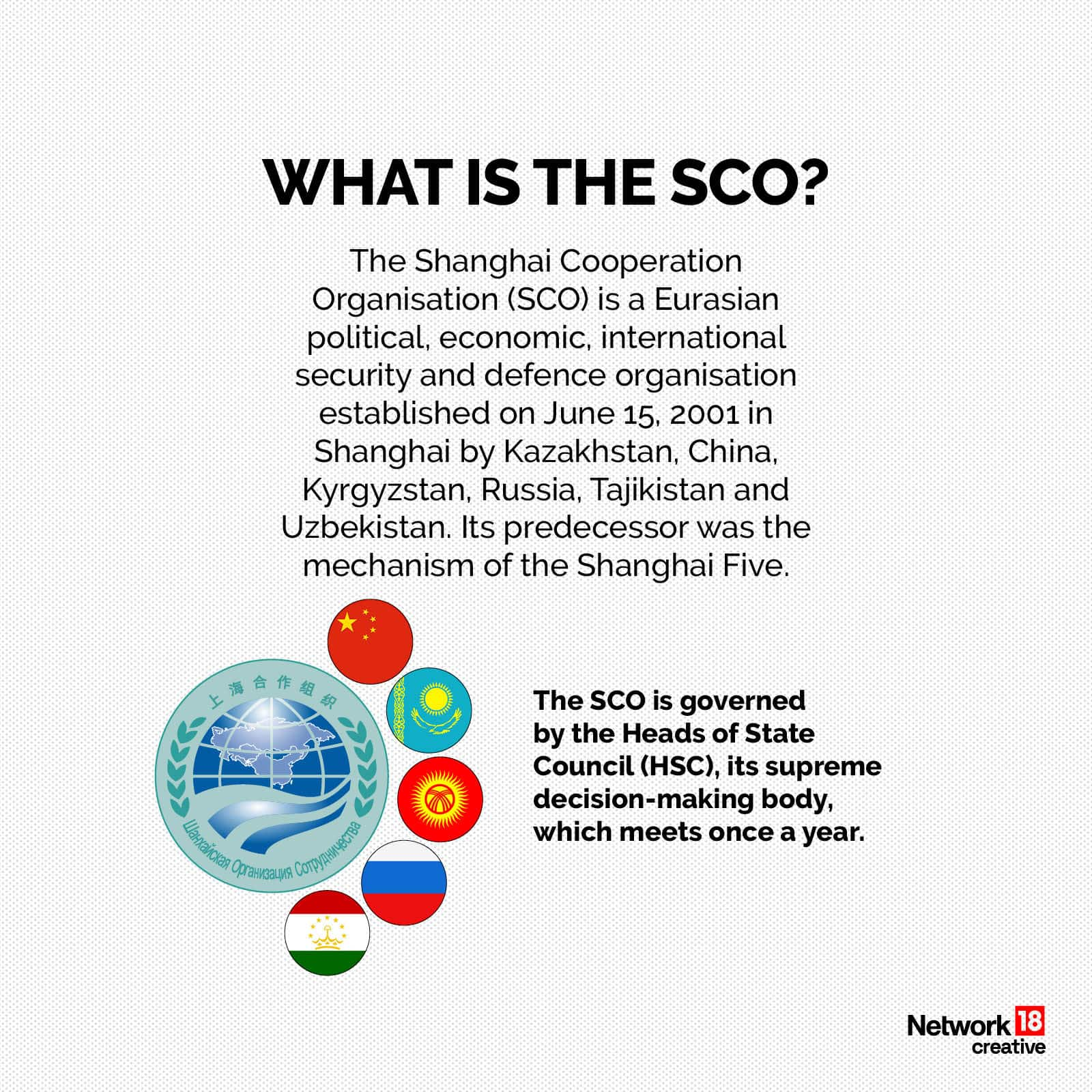
Key milestones
The SCO has undergone significant developments since its inception. It was officially established on June 15, 2001, and the Charter was signed in St. Petersburg in 2002, entering into force in 2003. The organisation expanded its membership in 2017 to include India and Pakistan, bringing the total to eight member states. Belarus became the 10th member in 2023, and Iran recently joined the group, further expanding the SCO's regional influence.
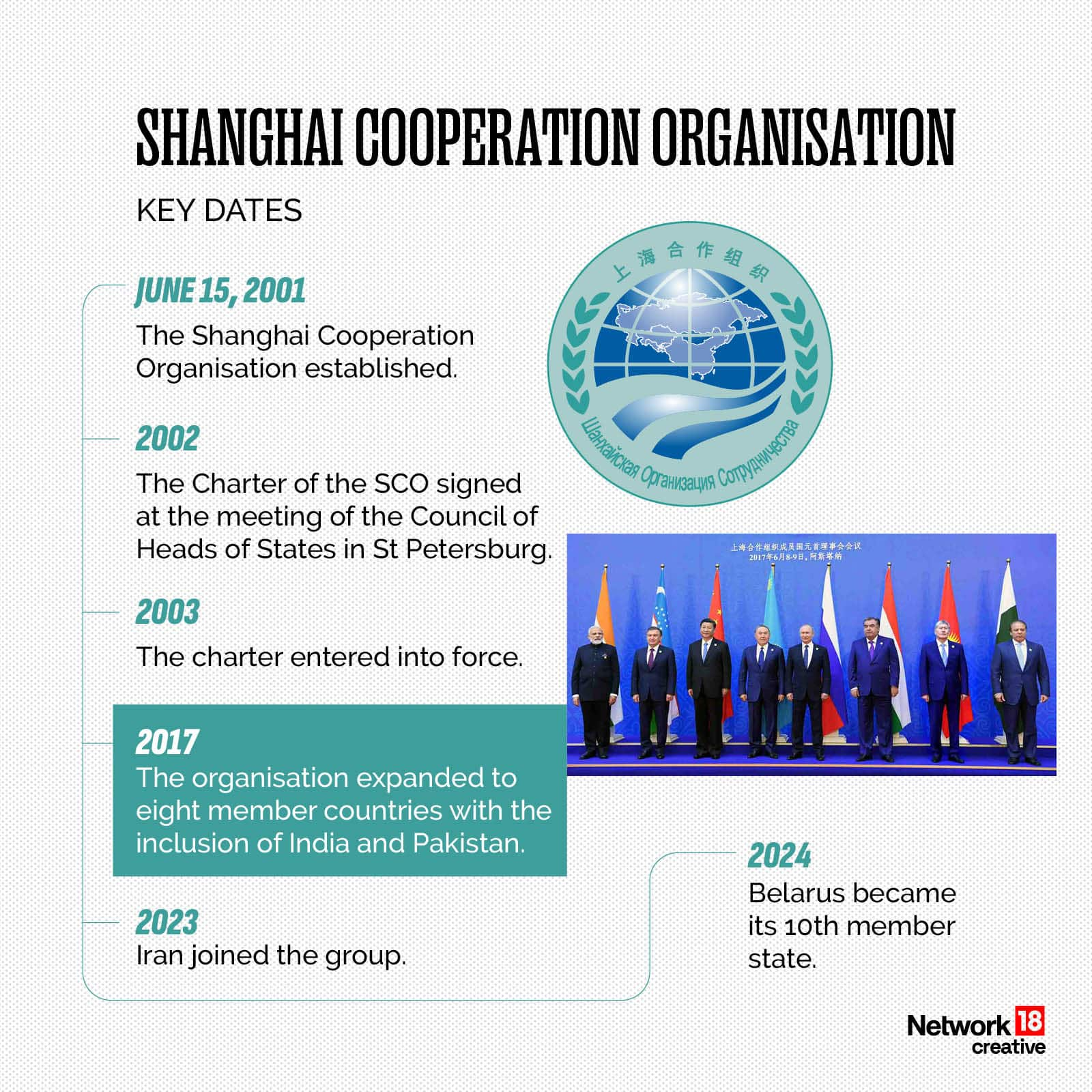
Current membership and structure
The SCO comprises the following member states - India, Iran, Kazakhstan, China, Kyrgyzstan, Pakistan, Russia, Tajikistan, Uzbekistan, and Belarus. Additionally, Afghanistan and Mongolia hold observer status, while various countries, including Azerbaijan, Armenia, Bahrain, Egypt, Cambodia, Qatar, Kuwait, Maldives, Myanmar, Nepal, the United Arab Emirates, Saudi Arabia, Turkey, and Sri Lanka, are recognised as dialogue partners. These countries engage with the SCO to enhance cooperation across various sectors, fostering diplomatic ties and exploring opportunities for collaboration in areas such as trade, security, and cultural exchange.
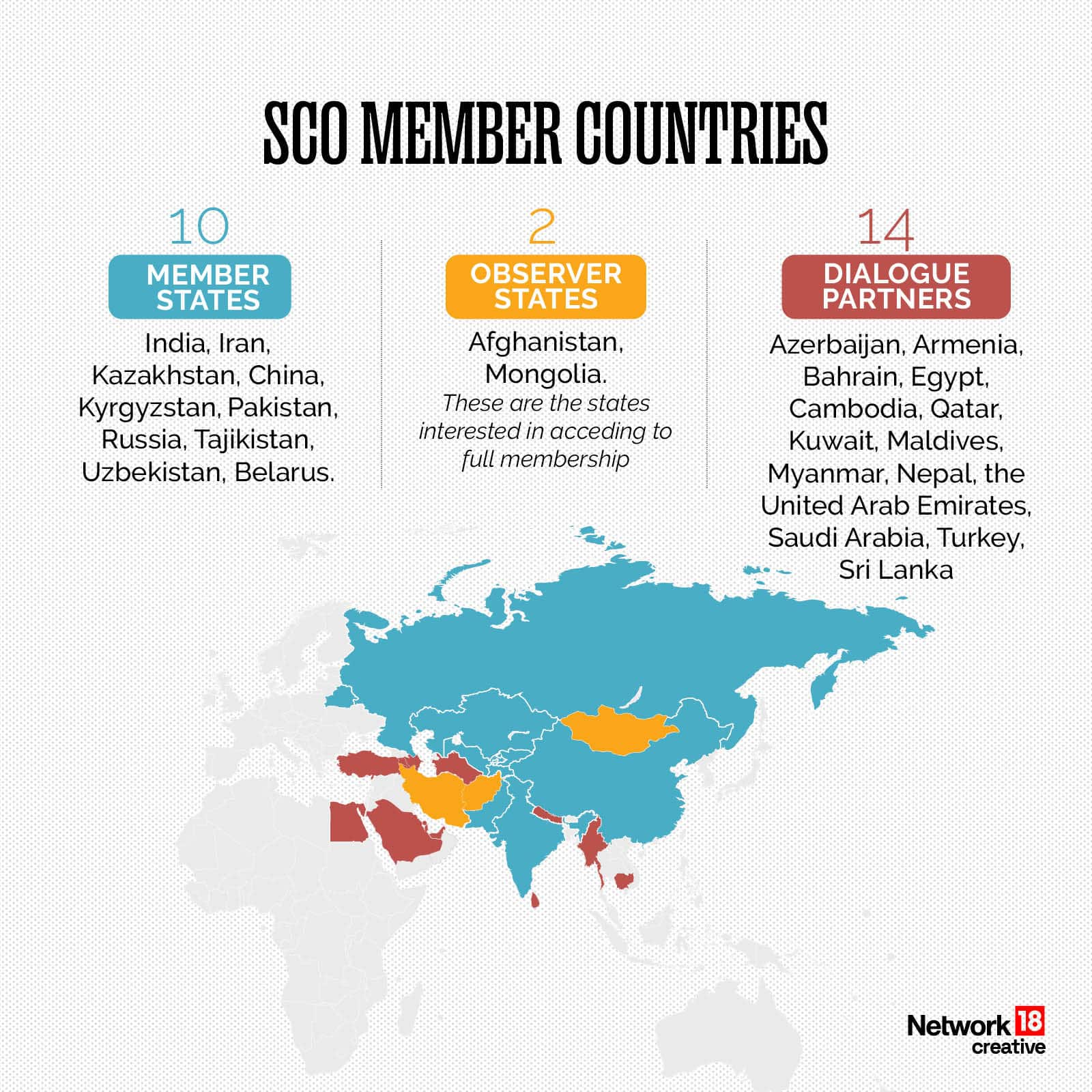
Objectives of the SCO
The primary objectives of the SCO include fostering mutual trust and enhancing cooperation among member states. The organization underscores collaboration in various sectors such as politics, trade, culture, education, energy, and environmental protection. Furthermore, the SCO is committed to maintaining regional peace and stability and aims to create a balanced international political and economic order. It is often perceived as a counterweight to NATO, with China and Russia positioning it as a non-Western geopolitical platform.
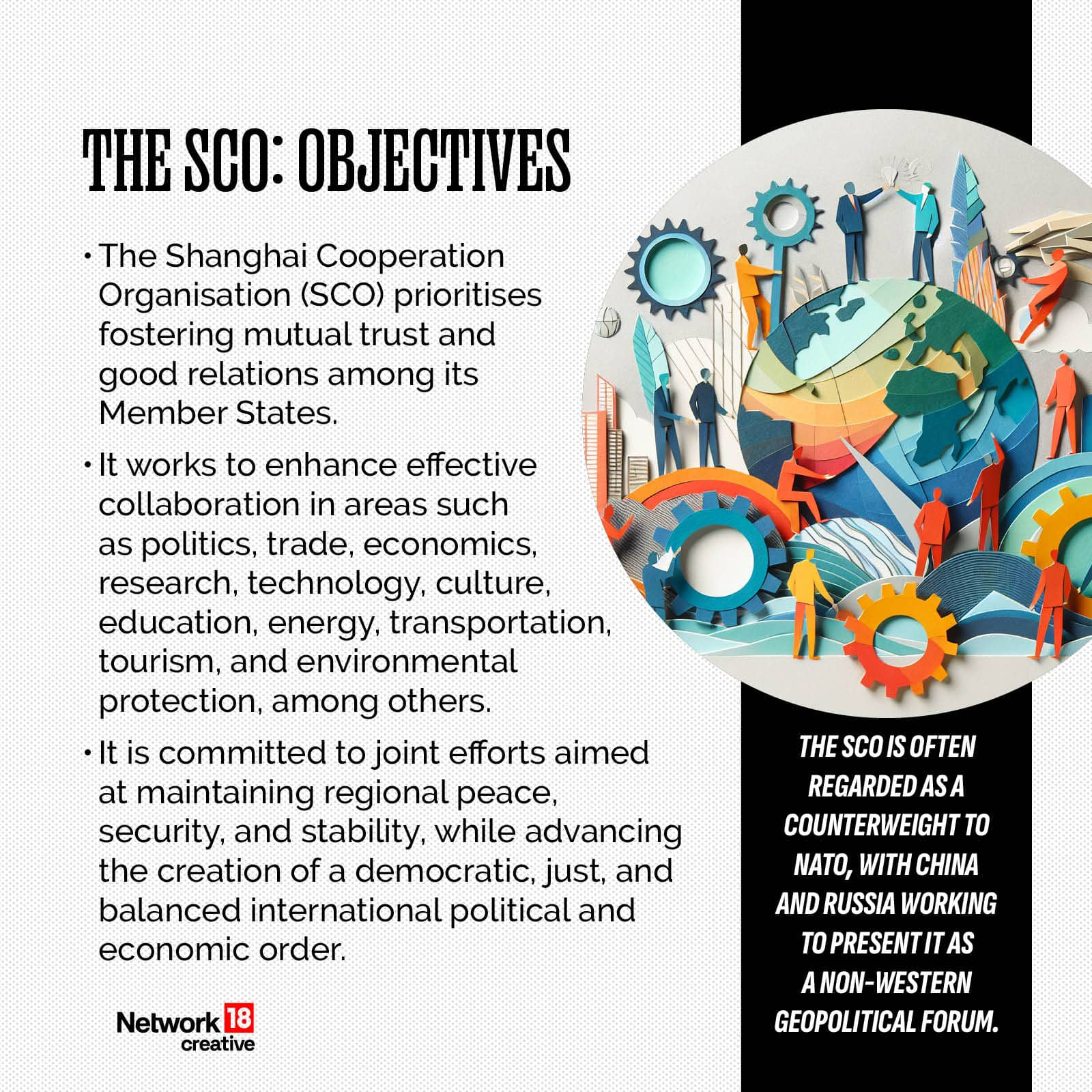
Importance of the SCO for India
India’s involvement in the SCO enhances its international standing and provides better access to regional markets while strengthening politico-strategic ties. The organisation serves as a platform for India to engage in multi-level cooperation concerning security, trade, investment, and energy needs. Participation in the SCO’s Regional Anti-Terrorist Structure (RATS) is particularly beneficial, as it allows India to gather crucial intelligence on terrorism and drug trafficking, addressing shared security challenges effectively.
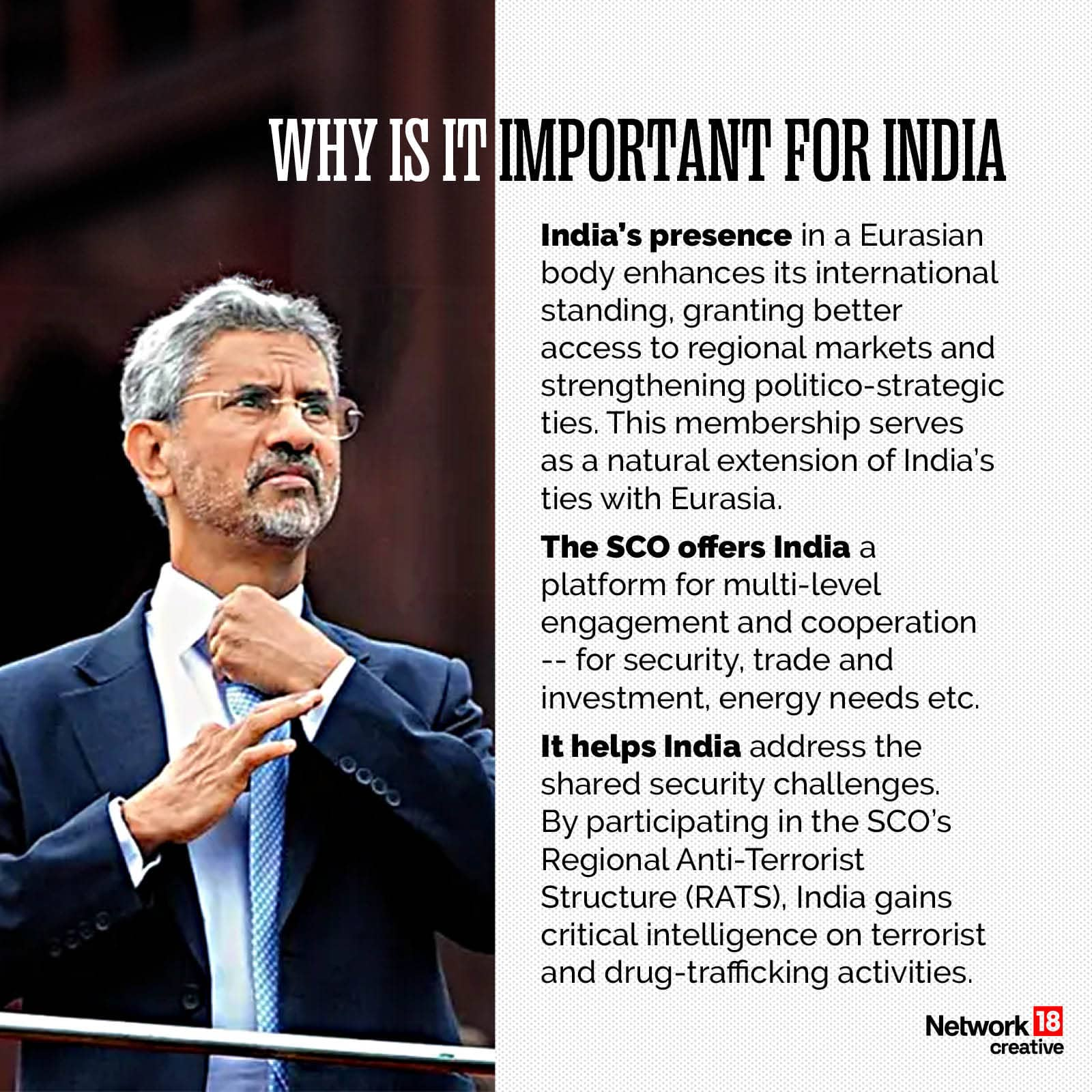
Significance of Jaishankar's Visit
Jaishankar arrived in Islamabad on October 15 to participate in the SCO conclave, marking the first high-level visit from India to Pakistan in nearly a decade, and addressed the summit on October 16. This visit comes amid ongoing tensions between the two neighboring countries. The EAM received a warm welcome from Pakistani Prime Minister Shehbaz Sharif, who greeted him with a handshake and exchanged pleasantries ahead of the summit. India has, however, clarified that there will be no bilateral talks with Pakistan on the sidelines of the SCO summit.
The SCO meeting is being hosted by Pakistan under strict security measures, with the capital city under lockdown to ensure the safety of delegates.
The last Indian foreign minister to visit Pakistan was Sushma Swaraj, who traveled to Islamabad in December 2015 to attend a conference.
Discover the latest Business News, Sensex, and Nifty updates. Obtain Personal Finance insights, tax queries, and expert opinions on Moneycontrol or download the Moneycontrol App to stay updated!
Find the best of Al News in one place, specially curated for you every weekend.
Stay on top of the latest tech trends and biggest startup news.